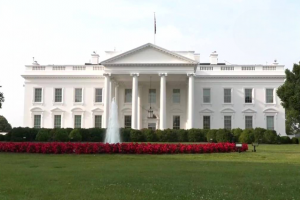The administration of former U.S. President Donald Trump is reportedly considering a new travel ban that could impact citizens from up to 43 countries, including Pakistan, Afghanistan, and Russia, according to The New York Times. Citing anonymous officials, the report states that a draft list categorizes countries into three groups—Red, Orange, and Yellow—each facing varying levels of travel restrictions.
The Red List includes 10 countries, such as Afghanistan and Bhutan, whose citizens could face a complete visa suspension. Other nations on this list include Cuba, Iran, Libya, North Korea, Somalia, Sudan, Syria, Venezuela, and Yemen.
Pakistan and Russia, among 10 nations placed on the Orange List, would be subject to travel restrictions rather than a total ban. While affluent business travelers might still be permitted entry, immigrant and tourist visa applicants would face stringent limitations, including mandatory in-person interviews. Other countries in this category include Myanmar, Belarus, Haiti, Laos, Eritrea, Sierra Leone, South Sudan, and Turkmenistan.
Meanwhile, 22 countries have been placed on a Yellow List, granting them a 60-day period to address security concerns. Failure to comply could result in being moved to one of the other lists. The Yellow List includes Angola, Antigua and Barbuda, Benin, Burkina Faso, Cambodia, Cameroon, Cape Verde, Chad, the Republic of Congo, the Democratic Republic of Congo, Dominica, Equatorial Guinea, Gambia, Liberia, Malawi, Mali, Mauritania, St. Kitts and Nevis, St. Lucia, São Tomé and Príncipe, Vanuatu, and Zimbabwe.
The proposal suggests that travel restrictions could be imposed due to concerns such as a country’s failure to share traveler information with the U.S., inadequate security protocols for issuing passports, or the sale of citizenships, which could create loopholes in existing bans.
If implemented, this would mark the second time Trump has introduced a travel ban. During his first term, he imposed restrictions on citizens from several Muslim-majority nations, a policy that underwent multiple revisions before being upheld by the U.S. Supreme Court in 2018. That ban affected citizens of Iran, Iraq, Libya, Somalia, Sudan, Syria, and Yemen.





